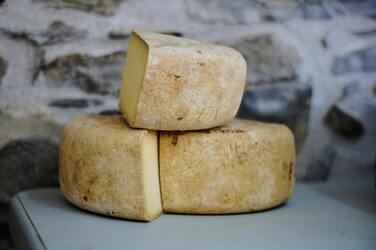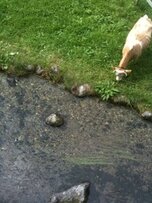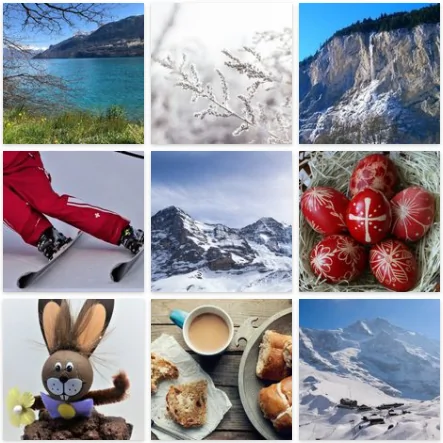 Mountain Cheese Mountain Cheese Listening to local myths and stories in a culture can really help to reveal characteristics of local people groups. The community of Lauterbrunnen is traditionally one of dairy farming. Since cheese is an elemental product in the livelihood of the farmers, so does it also takes centre stage in a tale from Aarau around the 1800’s. One day, while looking out over his caramel and white cows enjoying their summer grass, Hans the young shepherd thought that perhaps he wanted to get married. And then he could be as contented as his cows in their high pastures. Surrounded by snow capped mountains, gurgling streams and the chirping of Marmots, Hans thought that being married, would bring fulfilment to his life. Fortunately, Hans already knew three local sisters with whom he had been in school but he had not heard news of them since his years working on the alps in summer and in a garage in winter. Hans recalled that they were all equally beautiful and that they had all given him attention in class, such that he couldn’t think he had a favourite. Hans mused over his memories of class times and teasing the girls by slipping half dead crickets into the pockets of their aprons and how he was punished with cow pats rubbed into his hair. Hans chuckled at the screams he remembered over the crickets. Such small harmless insects that always made a big impact. Beate, Dorina and Luzia were “townies” and not familiar with collecting insects and he wondered if they would make a suitable farming partner. Hans decided to ask his mother, since she knew about girls and she was delighted to answer him, “If you want me to give you good advice," she said to him, "invite all three sisters over for supper and set out cheese for each of them and see how they handle it." The son followed this advice and invited the young ladies to his house and set the delicious matured Mountain cheese in front of them. He had made it himself and it had matured two years in a cool cave. Beate, with the cheeky smile and chubby cheeks was the first to take her piece and greedily devoured the cheese. She ate so quickly, including the rind, so that not a trace was left. Then Dorina, with her high forehead and wide smile, took the knife and cut off the rind so thick that the piece with the rind that she threw away contained a lot of quality cheese on it. Hans was dismayed, that his hard work of shaping and pressing the cheeses was not understood on someone who could throw it away. Slowly he looked to Luzia, who had waited for her turn to use the knife. With slow and careful slicing, Luzia, with the freckles and short nose, calmly peeled the rind clean from the cheese, just as it should be. “I’ll get us apples to eat” said Hans getting up from the table and he walked outside to where the apples were stored. Seeing his mother sitting in the sun peeling beans, Hans updated his mother on how the cheese tasting was going. His mother advised: "Take the third one, she will bring you luck." And so Hans chose Luiza to be his bride, and throughout his life he has never regretted that he had followed his mother’s advice. From: Otto Sutermeister: Children's and Household Tales from Switzerland (Aarau 1869), No. 39. The Swiss fairy tale has been found in a very similar way in Grimm's collection since 1819 under the title "Die Brautschau", KHM 155. Parabla 2011-03 |
Eyhus 5
Where dreams begin for outdoor adventures in the inspiring Jungfrau region Categories
All
Archives
July 2024
|
|
Eyhus 5,
3822 Lauterbrunnen, Schweiz Email: [email protected] About Us: We love the Jungfrau Region and enjoy helping guests to plan and discover the beauty here for themselves. Summer, Winter, Spring and Autumn each have their opportunities to give inspiration in this amazing Playground. |
|

 RSS Feed
RSS Feed

